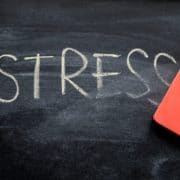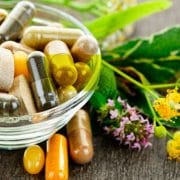Make Stress Your Friend

Our lives are busy juggling work, finances, marriage, kids, family, friends – the list goes on. We are constantly hearing from health experts that stress is bad for us and that we need to be less stressed which, ironically, often makes us feel more stressed. This is making us sick and people are even dying from stress-related diseases.
What if it’s not the stress that’s killing us, but instead it’s our responses and perception of stress that’s killing us? Research is showing that it’s in our body’s natural mechanism to cope with stress, and our reaction and belief around whether stress is a good or bad thing, that is the most harmful to our health.
A popular TED talk by Kelly McGonigal, a Health Psychologist, “How to make stress your friend” is about approaching stress as helpful rather than being the enemy.
She based her talk on a study of 30,000 people in the US over eight years. They were asked questions such as “How much stress have you experienced in the past year?” and “Do you believe that stress is harmful to your health?”. Interestingly, those who expressed a great deal of stress but didn’t view it as a harmful experience had the lowest risk of dying, whereas those who said they had experienced a lot of stress and viewed it as harmful had a 43 percent increased the risk of dying.
McGonigal says if change our mindset and view our responses to stress as helpful to our performance, we will be less stressed out, less anxious, more confident. That pounding heart? It’s preparing you for action. Your increased breathing rate? It’s simply getting more oxygen to your brain. Your body will naturally manage the stress response and calm the nervous system down, as long as you don’t allow yourself to get worked up over a stressful situation.
There’s even a term for ‘good’ stress – Eustress pronounced YOU-stress. It is the type of stress we feel when we are out of our comfort zones, but working towards something bigger or feel excited or challenged in a good way. Eustress provides us with an energy boost to perform challenging activities – especially where we need to focus and put in the extra effort. So, what if you were to consider all stress as Eustress? There’s no difference between Eustress and Distress, other than our reaction to it.
As you can see, how you think about stress matters. The next time you are stressed, stop, take a deep breath and say to yourself “This is my body, rising to the challenge.”
Watch the full Ted Talks here: https://www.ted.com/talks/kelly_mcgonigal_how_to_make_stress_your_friend



 The marketing of antioxidant supplements
The marketing of antioxidant supplements